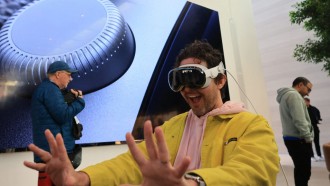Although it is common to have bacteria that are resistant to certain types of antibiotics, new research suggests that some bacteria are actually eating the antibiotics.
What Scientists Found
Scientists at Washington University School of Medicine in St. Louis figured out that some bacteria are able to feast on the same antibiotics that were designed to eradicate them.
The findings were published in Nature Chemical Biology on April 30.
The first discovery that confirmed that bacteria could consume antibiotics occurred in the 1960s.
"Even though not a lot has reported since then, we showed that many more antibiotics were at the buffet table for bacteria," said researcher Gautam Dantas, an associate professor of immunology at the Washington University School of Medicine in Missouri.
In the new findings, scientists determined the actual steps some bacteria go through to eat antibiotics. They studied four unique species of soil bacteria that consumed penicillin.
The bacteria turned on sets of genes to help with the process of eating the penicillin. They diminished the toxicity of the antibiotic, which made it easier to consume.
The Rise Of Superbugs
Superbugs are bacteria that have become resistant to antibiotics. The Centers for Disease Control and Prevention says that superbugs infect 2 million people in the United States and kill at least 23,000 people every year. Common superbugs include carbapenem-resistant Enterobacteriaceae, methicillin-resistant Staphylococcus aureus, and multidrug-resistant Acinetobacter.
Patients play a role in the development of drug-resistant superbugs. Some patients use antibiotics to treat viral infections such as flu and colds, but these infections do not require antibiotics. When a patient on antibiotics doesn't complete the course of treatment, some bacteria can also develop a resistance.
On farms, some animals are fed antibiotics just to make them bigger and faster. There are also cases of antibiotics polluting factories and sewage, spreading to other bacteria that learn how to attack the medicine.
What The Future Holds
Researchers believe that the discovery of antibiotic-eating bacteria might be a good thing for the medical community. The findings reveal that these bacteria might have the same mechanisms as superbugs.
"The next thing we found is there are specialized enzymes that these antibiotic-eating bacteria have that chop these compounds down into bite-sized pieces," Dantas said.
Scientists can now design bacteria that can eat pollution from antibiotics in factories, sewage, and farms. This process could potentially diminish the spread of superbugs.
Dantas noted that antibiotic-eating bacteria are probably not deadly.









